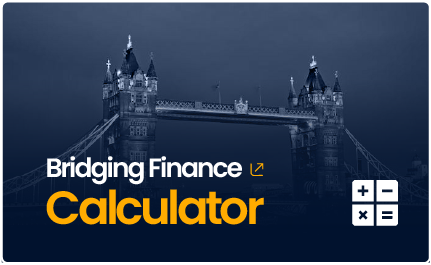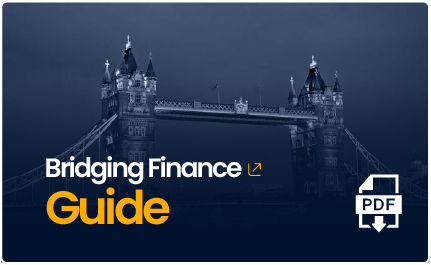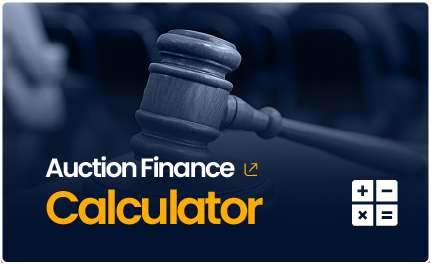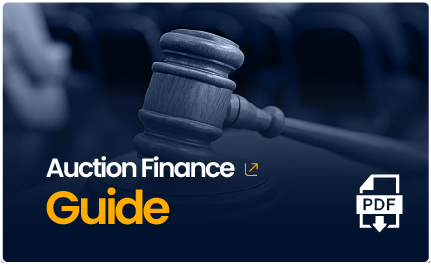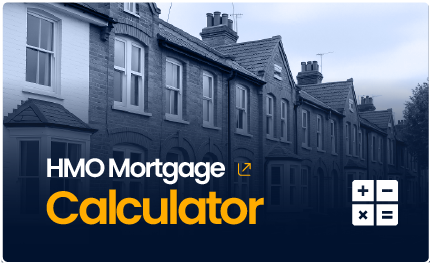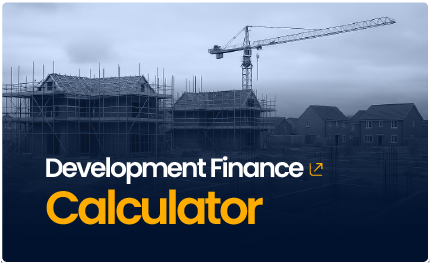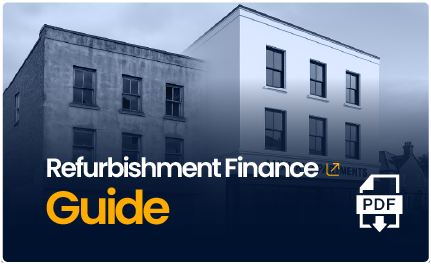- Experienced
- Knowledgeable
- Passionate
Hank Zarihs Associates excel in securing tailored funding solutions by aligning projects with the right lenders through expert due diligence.
£1 Billion+
Secured
Secured
- Fast Funding Approvals
- Expert Advice
- Tailored Solutions
- Fast Funding Approvals
- Expert Advice
- Tailored Solutions
OUR RECENT
Success Stories
TAILORED FUNDING SOLUTIONS
Our Services
Our core focus is offering fast solutions, financial products that deliver results, and the highest of service levels. If you would like to find out more please contact us to discuss your funding requirements.
01
Auction Finance
Auction Finance
02
Bridging Finance
Bridging Finance
03
Development Finance
Development F..
04
Buy-to-Let Finance
Buy-to-Let Fin..
05
Equity/JV Funding
Equity/JV Fund..
06
2nd Charge Finance
2nd Charge Fin..
OUR FINANCE SPECIALISTS
Meet Our Team
Our core focus is offering fast solutions, financial products that deliver results, and the highest of service levels. If you would like to find out more please contact us to discuss your funding requirements.
OUR FOUR STEP SIMPLE SALES PROCESS
Our Sales Process
CONFUSED ABOUT FINANCE?
Call & Discuss
WE WILL PACKAGE YOUR APPLICATION
Submit Documents
01
Call us today to discuss your enquiry. We’ll find out what product is suited to your needs – we just need 5 mins of your time.
Once we’ve received terms from our select panel of lenders, We’ll inform you of the options you have and then you’ll let us know which offer to proceed with.
02
03
Once you’ve selected the perfect lender, we’ll go ahead and package the application on your behalf, making it a seamless and easy process. We’ll then instruct valuation and legals on the same day.
Once the case has been submitted and the valuation report is back the case will be formally offered and funds can be made available to drawdown, subject to the legal due diligence being complete – From start to finish, we can have deals ready in as little as 7 working days.
04

RECEIVE TERMS FROM LENDERS
Compare Offers
FORMAL SUBMISSION
Get your finance
01
CONFUSED ABOUT FINANCE?
Call & Discuss
RECEIVE TERMS FROM LENDERS
Compare Offers
Once we’ve received terms from our select panel of lenders, We’ll inform you of the options you have and then you’ll let us know which offer to proceed with.
02
03
WE WILL PACKAGE YOUR APPLICATION
Submit Documents
Once you’ve selected the perfect lender, we’ll go ahead and package the application on your behalf, making it a seamless and easy process. We’ll then instruct valuation and legals on the same day.
FORMAL SUBMISSION
Get your finance
Once the case has been submitted and the valuation report is back the case will be formally offered and funds can be made available to drawdown, subject to the legal due diligence being complete – From start to finish, we can have deals ready in as little as 7 working days.
04

FINANCIAL TOOL
Bridging Loan Calculator
If you’re looking to purchase a property at auction – perhaps to refurbish, or to acquire the land to build upon – then you may need finance to complete the transaction.
Bridging Loan Calculator
Lorem ipsum dolor sit amet, consectetur adipiscing elit. Nulla facilisi. Curabitur tincidunt, nunc vel tincidunt pretium, felis ligula feugiat neque, ac volutpat turpis velit et metus. Integer suscipit, justo a venenatis bibendum
The results provided by this calculator are estimates only. Actual loan terms, amounts, and rates may vary based on your specific circumstances and lender requirements. We recommend consulting with a financial advisor or lender for a detailed, personalized quote.
Cost Per Month: £ 2,250,000
Cost Per Term: £ 27,000,000
Rate Per Annum: 9.00%
Total Fees: £ 21,000,000
Net Loan: £ 279,000,000
Net LTV: 55.80%
Send Result in Mail
FINANCIAL TOOL
Other Tools & Resources
At Hank Zarihs Associates, we provide access to a range of tools and resources designed to support your funding journey. From financial calculators and market insights to detailed guides on development finance, our resources empower you to make informed decisions. Whether you’re exploring investment opportunities or planning a new project, these tools are tailored to give you clarity, confidence, and a competitive edge in securing the right funding.
WHY OUR CLIENTS CHOOSE US – AGAIN AND AGAIN
Your Success, Our Story
WE WILL FUND YOUR PROJECT!
Book a Call Today
Hank Zarihs Associates streamlines your financing journey with tailored solutions, fast approvals, and expert guidance, connecting you to trusted lenders for project success
- Appointments 7 days a week
- From 7am till 10pm
- No obligation
- Terms issued within minutes
- Friendly and experienced advisors
- Ask all the questions you need!
WHAT IS BRIDGING FINANCE?
Bridging Finance & How does it work?
Hank Zarihs Associates streamlines your financing journey with tailored solutions, fast approvals, and expert guidance, connecting you to trusted lenders for project success
You may have heard about bridging loans in the context of property investment or moving house, but what exactly are they? Basically, bridging finance is a type of short-term loan that allows a buyer to purchase a property before their existing home or investment property is sold. As the name suggests, it ‘bridges’ the funding gap in the lag between purchase and sale – offering rapid access to the necessary purchase funds for a brief period of time.
Borrowers can access from £5,000 to £250 million, depending on applicant status, the value of the property and other lender criteria. Higher lending amounts are typically reserved for borrowers who can put up several properties as security. Quotes are provided on a Loan to Value (LTV) of 65%-80% in most situations.
- When people are moving home in a chain, with a gap between completion dates (e.g. needing to pay for the new property before receiving funds on the completed old property).
- When property investors or private buyers renovate a home and want a rapid sell-on.
- When an individual is looking to buy a property at an auction.
- When property investors and developers are looking to pay a tax bill
- When buyers want to secure finance against an uninhabitable property.
The bridging finance market has grown rapidly, with a number of small and focused lenders now on the market, catering for specialist property finance needs. The market has changed because large high-street lenders have become less willing (and sometimes less able) to lend ever since the financial crisis of 2008.
As to whether a bridging loan for property development, auction purchase or private home buying is a good idea, it depends on a variety of factors. Bridging loan requirements vary by lender, but each will have certain common features that need to be considered.
The most notable feature of this type of finance is that the interest rate is likely to be high. At the same time, there are typically high administration fees applied to the loan. Because of this, it is essential to proceed very carefully and with a full view of the facts. Borrowers have been burned by this type of loan in the past, in instances where transactions have fallen through, or where lenders have turned out to be unscrupulous and untrustworthy.
Benefits of instant bridging loans
1. Rapid access to money
2. Ability to borrow large sums – often up to £250 million depending on applicant status
3. Options for flexible borrowing.
Possible downsides of bridging loans:
1. Failure to understand the unique features of these loans can result in financial risk
2. Bridging finance is secured against your property; meaning it can be sold if you can’t meet the repayment terms
3. A costly option with fees and higher interest
Bridging finance interest rates will vary by lender. However, interest costs of 1.5% a month are not unusual, which can equate to an annual percentage rate of 18%.
Bridging loans may have fixed or variable interest rate features. Fixed interest rates are ideal for customers who want stability, as they offer the same amount of interest for the duration of the term. The rate is pre-agreed, but there may be a premium for this security.
The other choice is to have a variable rate bridging loan which can change with the base rate. However, you can save money if the base rate decreases. Borrowers who are less concerned about security sometimes prefer the variable rate option if they believe that the financial markets will travel in their favour. Knowledge and market insight is required here, along with a thorough understanding of personal risk tolerance. If interest rates appear to be rising, most customers will choose the fixed interest rate to lock it in and avoid further increases in the event of a base rate rise.
Bridging loan periods tend to be for several months and there are usually different options for paying the interest portion.
Monthly repayments
The customer repays the interest every month as a separate payment, rather than adding it to the outstanding balance
Rolled-up bridging finance deals
The compound interest is calculated monthly but added to the outstanding loan balance and paid together when repayment is due.
Retained interest
The monthly interest payment due is covered up to a predefined date so that the full sum is only repaid when monies are due.
As well as interest payments, there will be an arrangement fee for the set-up of the bridging loan, which is usually around 1-2%. A repayment fee for exit paperwork may also apply, along with valuation fees for the cost of the surveyor.
Remember, this type of finance is designed to be short-term. As soon as it extends beyond the agreed interim or bridging period, penalties can rapidly stack up. Typically, bridging finance is available for 1 – 18 months.
Yes, there are two broad types: closed bridging finance and open bridging finance.
With closed bridging finance you will tell the lender how you will repay the loan – with what funds and when. These loans usually complete within a few months and the clear exit plan is required as a lending condition.
Open bridge finance won’t usually need this type of exit plan, and it is typically the loan of choice when funds are needed urgently to complete a property transaction. No detailed plan is needed to explain how the debt will be settled, and the finance tends to be offered for up to a year. Of course, it’s important to note that interest will keep being applied throughout this period.
There are also first charge bridging loans and second charge bridging loans.
If you have a loan against a property which is already mortgaged, you’d take out a second charge loan. An example of this would be if you were planning to finance a property extension to improve the property. The categorisation tells the lenders who will have legal priority for repayment if the loan was unable to be paid off at the term-end.
First charge loans apply if the new loan is the first secured on the property.
Bridging loan requirements will depend on the lender. Often, lenders will require that:
Customers must also take out their property mortgage with them too, providing the bridge finance as an interim measure before the standard mortgage comes into play.
Property is put forward as security against the loan. Some lenders expect applicants to have more than one property in order to be eligible for their bridging finance products, but this will depend on the lender and the size of the loan.
Applicants show proof of income – although, interestingly, as loan interest isn’t repaid monthly, some lenders do not request this.
The applicant shows evidence of their property investment track record if they are planning to develop their purchased property.
The applicant can show a business plan if they are using the bridging loan for commercial purposes.
Development loans are another type of short-term property development loan. They are repaid in stages and calculated on the gross value of the development. Personal loans are another option, as are remortgages when timescales are more flexible and a long-term loan is desirable.
Use a bridge loan calculator
Ask for your lender to provide a tailored bridge finance example or illustration around your particular borrowing needs.
Think carefully about the type of bridging loan that you need – whether open bridge finance or closed bridge finance.
Know whether the loan is a first or second charge type.
Clarify whether the interest rate is fixed or variable.
Review products from several lenders.
Be clear on your security.
Read the small print!
Bridging loans are offered by banks, building societies, specialist lenders and brokers. They aren’t widely advertised and usually require a direct application by the customer to find out the product features and offers.
Once you have made an application, a decision will usually be made within 24 hours. The funds then will take around two weeks to be issued, including time for checks to be carried out, the valuation and the actual transfer.
Hank Zarihs are highly experienced and specialist financial intermediaries operating in the property development market. We work with a tried and tested panel of over 60 trusted lenders and can provide excellent bridging finance with attractive features. Contact us to find out more.
RECENT NEWS & UPDATE
Our Blogs & News

The construction industry has written an open letter to the prime minister Sir Keir Starmercalling for a rethink on proposed

Scottish housing secretary Màiri McAllan is urging the country’s planning authorities to exercise proportionality to avoid ‘unnecessary’ costs and delays

Housebuilders are calling for flexibility over tenures as financially strapped housing associations are increasingly unable to buy the ‘affordable homes’

A new pre-examination checklist for local plans goes live next month to help speed up approvals and avoid lengthy inspectorate
AREAS WE COVER
Areas We Have Helped Clients for Auction Finance
Hank Zarihs Associates streamlines your financing journey with tailored solutions, fast approvals, and expert guidance, connecting you to trusted lenders for project success







